Communication
The Latest Developments & Updates
Find more news on communication-related issues important for the Dutch LSH sector. Ranging from expansion of the Top Sector LSH and important publications.
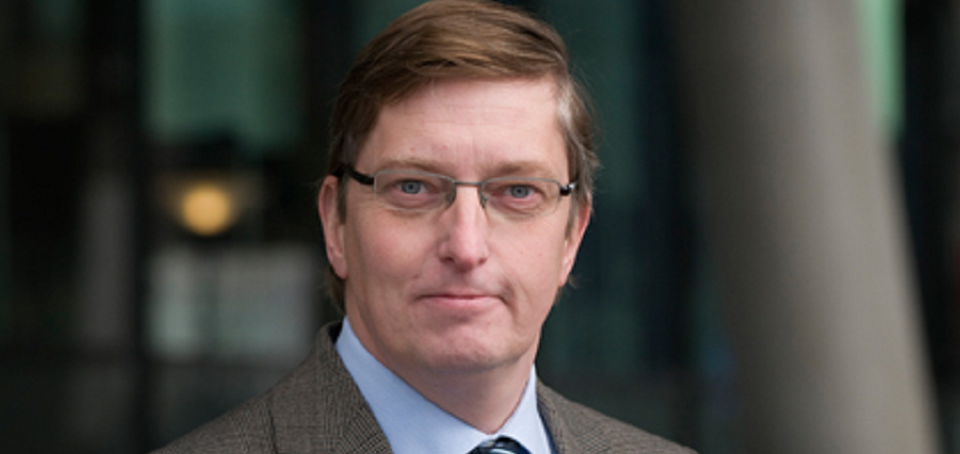
Introducing new Top Team member Professor Pancras Hogendoorn
Read more ›
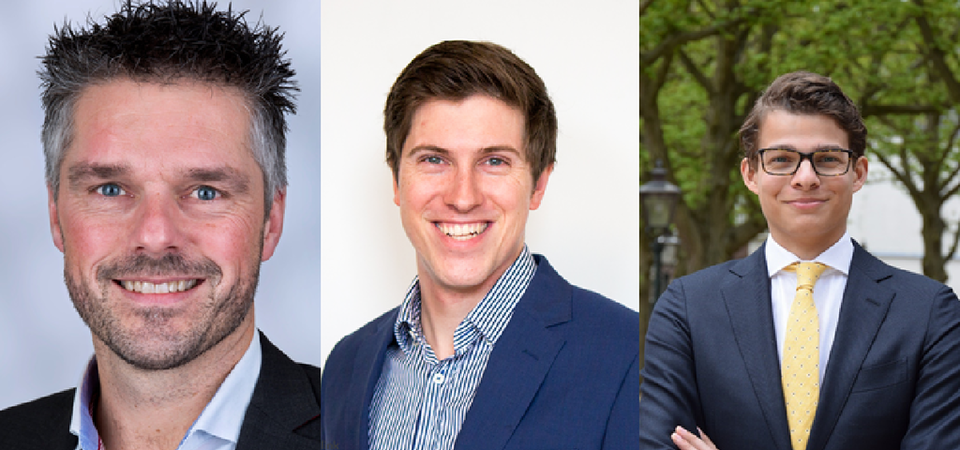
Health~Holland expands
Read more ›
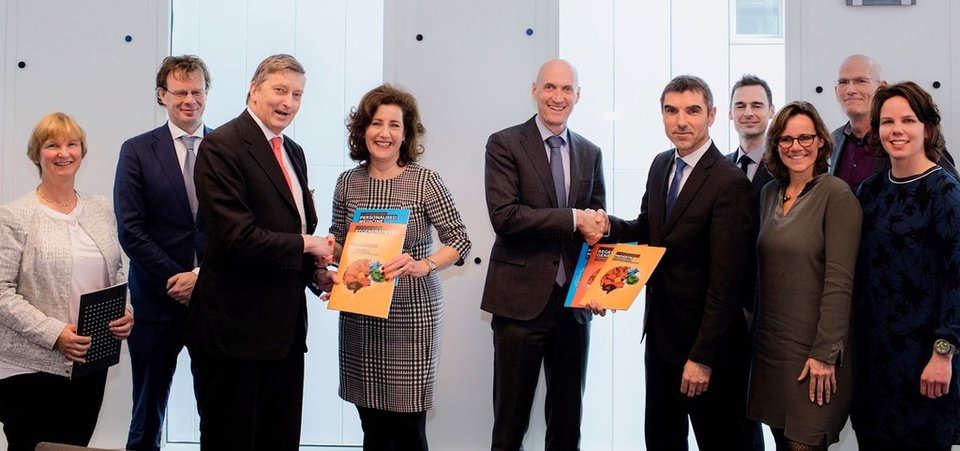
Knowledge agendas on health presented to the ministries
Read more ›
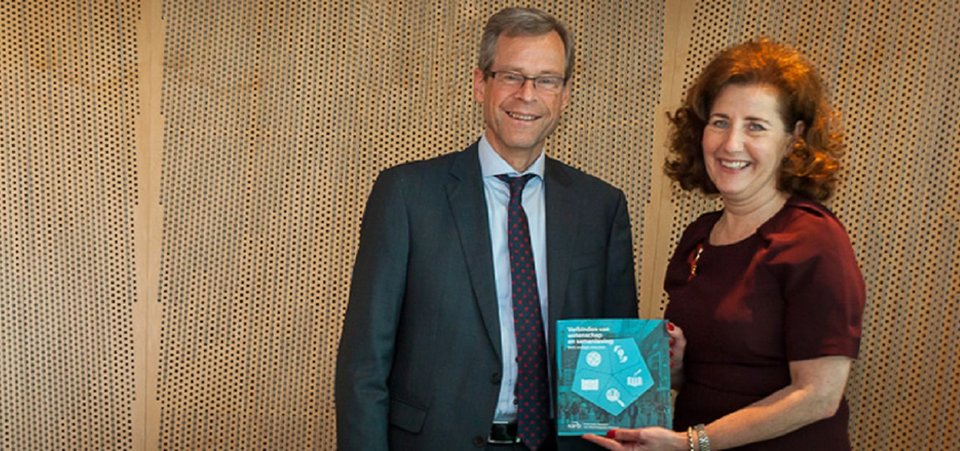
New NWO-strategy 2019-2022
Read more ›
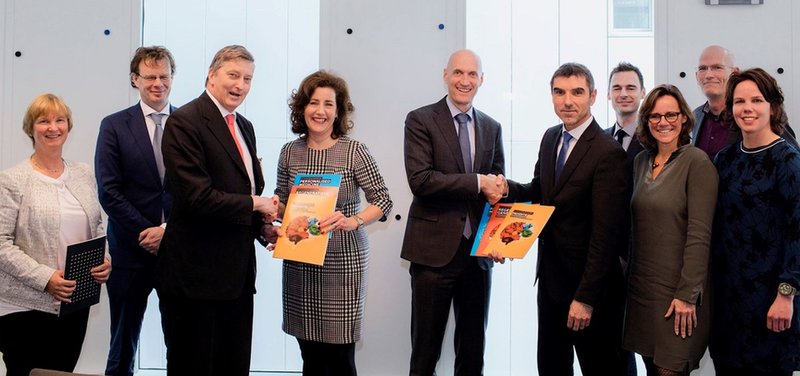
Knowledge agendas on health presented to Minister Engelshoven and State Secretary Blokhuis
On 22 March, the Minister of Education, Culture & Science (Ingrid van Engelshoven) and the State Secretary for Health, Welfare & Sport (Paul Blokhuis) received three knowledge agendas from NFU chairman Ernst Kuipers. These knowledge agendas are an elaboration of some of the public questions for the Dutch National Research Agenda in the field of health. They describe how innovative research can find solutions and scientific breakthroughs for the big societal challenges of our time: how do we keep society healthy and how can scientific research lead to innovations in healthcare?
Routes from the Dutch National Research Agenda (NWA)
The NWA is based on more than 11,700 questions from society, which are categorised in 25 routes linked to societal challenges. In these routes, science and society team up to find solutions for these challenges. A large number of these NWA questions concerned health. Based on these questions, broad coalitions of experts are developing scientific propositions, for example in the field of digital society, brain and cognition, sport and exercise or big data. On 22 March, three coalitions reached a milestone when they presented a knowledge agenda in their field:
- Prevention (Preventing illness and promoting health and well-being)
- Personalised Medicine (Person-centred medicine)
- Regenerative Medicine (The actual cure of chronic diseases)
Unique collaboration
For these three knowledge agendas a coalition of experts from different organisations has translated the public questions into important themes for future healthcare research. The coalition included representatives from academic medical centres, universities, universities of applied sciences, health foundations, patient organisations, the TO2 federation and industry. ZonMw and the Netherlands Federation of University Medical Centres (NFU) coordinated the establishment of the three knowledge agendas.
Opportunities
The knowledge agendas describe which new scientific approaches can be used to answer the questions. This way scientific research offers opportunities for prevention, preventing illness and promoting health and well-being. In the case of chronic diseases real recovery is more frequently possible, instead of solely targeting symptoms. And by taking a closer look at the differences between people, treatments can be applied in a more targeted manner, with more success and fewer side effects. Besides, the themes of the knowledge agendas strengthen each other: knowledge on the differences between people can be used for prevention and techniques from regenerative medicine offer more opportunities for personalised medicine.
Invest now
Now is the time to make serious investments in the scientific challenges of health, in researchers and in the technology they need. But also in education, training and the application of new knowledge obtained from this research. There is a return on the investment made in terms of both hard currency – healthy persons rely less on healthcare – and in quality of life. This will benefit the healthcare sector and society as a whole.
Source: NFU
Introducing new Top Team member Professor Pancras Hogendoorn
With effect from 1 January 2018, the Top Sector LSH welcomes Pancras Hogendoorn, Professor of Pathology, member of the Leiden University Executive Board, and dean of the Leiden University Medical Center (LUMC) as a new member of the Top Team Life Sciences & Health. Within the Top Team Pancras Hogendoorn represents academia. So who is Pancras Hogendoorn and what is his vision for the sector?
What is your personal motive to work in the Life Sciences & Health sector?
The Life Sciences & Health (LSH) sector is a fascinating sector with intriguing research questions - ranging from fundamentdal to applied - and with the end-goal to improve healthcare and health for citizens. For myself the extra dimension is the large societal impact that you have on Dutch citizens and the critical importance of collaborating between industry and academia, which gives the opportunities to go from an idea to a product incorporated in people’s lives.
What do you think is the value of the top sector approach?
In the transition from idea to product at the bedside or in the population the link with the industry is essential. The top sector approach fulfils an important role in facilitating the collaboration with companies. And at the same time it brings focus and a gives a certain identifiably. For example within the Dutch National Research Agenda it is benefical to work closely together with the Top Sector LSH. You might be inspired by three knowledge agendas on health handed to the ministries of science and of health.
Do you have personal experiences with public-private partnerships (PPPs)?
In Leiden we have the largest life sciences cluster of the Netherlands in the Leiden Bio Science Park (LBSP). It contains more than 100 dedicated medical life sciences companies and institutions. As dean of LUMC, the LBSP is a part of my portfolio of interest. The LBSP positions itself at the crossroad of LUMC, the faculty of Science of Leiden University and industry and is the perfect melting pot for PPPs. LBSP also has great potential connection with the European Medicines Agency (EMA) and we are really looking forward for the move of the EMA to the Netherlands. Currently new buildings are being projected in the open space to attract even more companies to the area, with Schiphol at arms length it is a perfect place for an international LSH outreach.
What are the strengths and weaknesses of the Dutch Life Sciences & Health sector?
Our current SME model works well. However we are currently missing the large pharma companies in the Netherlands and medical technologies companies are currently not optimal connected to the pharma industry. That could be a point of attention for us to focus on as a country.
How do you see the future of healthcare in the Netherlands?
We must keep healthcare affordable. We incorporated that in the research agenda Sustainable Health of the Netherlands Federation of University Medical Centres where a renewed emphases lies on prevention and early risk identification. For this specific focus area we need to collaborate with Dutch citizens to promote public health and identify risk groups to specify interventions. Here it is clear that we need to outreach also to the academies of applied sciences and the TO2 institutes.
"By working together you can go twice as fast."
What is your message to everybody working in the Life Sciences & Health sector?
Go and find each other. There is a lot going on in the sector and it is a real shame if opportunities are missed. Take the time to check out each other's agendas and to search for collective actions. By working together you can go twice as fast.
Photography: LUMC
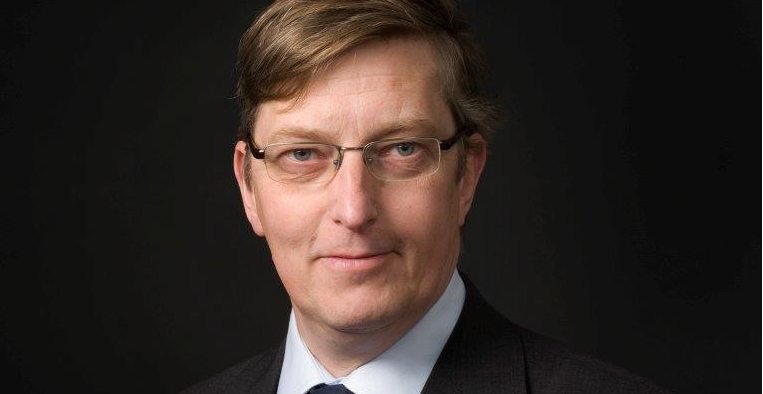
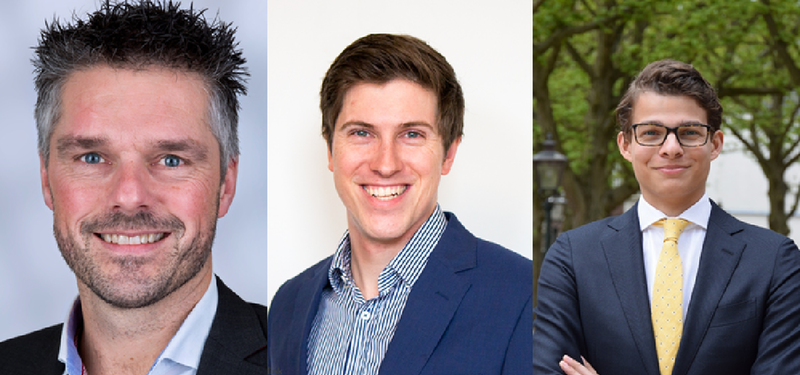
f.l.t.r. Alain van Gool, Thom Frielink, Darcey Helstone
Health~Holland expands
The executive office of the Top Sector LSH has welcomed two new colleagues in their team. And the Evaluation Committee also has a new member to help them assess new project applications. Read a brief introduction to each of the new Health~Holland colleagues.
Alain van Gool - Evaluation Committee member
Trained as a molecular and cellular biologist, I have had the pleasure to experience different working environments in academia (ErasmusMC, CancerUK, Radboud University), pharmaceutical industry (Organon, Schering-Plough, MSD), applied research institutes (TNO) and university medical centers (Radboudumc). There I have been leading technology-based biomarker laboratories, cross-functional expert teams, therapeutic project teams and public-private collaborations, many of which were focused on the discovery, development and implementation of translational biomarkers in a variety of therapeutic areas. My technical expertise resides most strongly in molecular profiling (various Omics approaches), analytical biomarker development and applications in translational medicine research. Currently, I am professor Personalised Healthcare at the Radboud university medical center and head the Translational Metabolic Laboratory with a strong passion to translate omics-based biomarkers from research to personalised diagnostics. I combine this with a role as strategic advisor of the Executive Board at Radboudumc, coordinator Radboudumc Technology Centers, scientific lead Technologies of DTL (the Dutch Techcenter for Life Sciences), chair Biomarker Platform of EATRIS (the European infrastructure for Translational Medicine) and co-initiator of Health-RI (the Netherlands Personalised Medicine and Health Research Infrastructure), thus contributing to the organisation and coordination of local, national and European technology infrastructures.
I am a strong believer of open innovation networks and public-private partnerships, and thrive to work with specialists to translate basic research to applied science.
Thom Frielink – Innovation Advisor
I graduated in Innovation Sciences, with a specialisation in the Life Sciences, at Utrecht University. After graduating I became a subsidy (non-dilutive funding) consultant at Catalyze, which I did for two years. My motivation for choosing a job in the life sciences is to try to make a difference in patients' lives. In addition, I enjoy the challenge of understanding the complexities of healthcare and life science product development and implementation. My ambition within my current role is to enable organisations to help start-ups in understanding this field and to reduce the time needed for innovations to be effectively implemented.
Darcey Helstone – Programme Assistant
I have a bachelor's degree in Chemistry with a specialisation in separation methods and drug development, and a research master's degree in management and policy in the health and life sciences. I joined the LSH sector because I was attracted to its broad scope and the complexity of its challenges. During my time at Health~Holland my ambition is to contribute to an increase in support for mental health and healthcare projects and to improve awareness in the scientific community and society as a whole.
Get in contact with Thom (frielink@health-holland.com) or Darcey (helstone@health-holland.com) or meet them at the Health~Holland office.
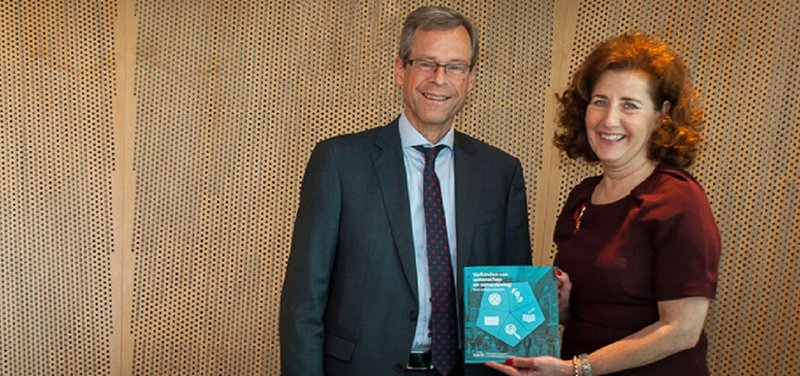
New NWO-strategy 2019-2022
Connecting Science and Society
On April 12, NWO announced its new strategy for the period 2019-2022. The strategic plan describes five ambitions of NWO to facilitate the scientific and societal impact of Dutch research in the coming years. This requires an effective organisation that focuses on the connection within science and between science and society.
The transition that NWO has gone through over the past few years is an initial step in this direction. With this strategic plan, NWO is making a second step that will allow it to flexibly and resolutely anticipate developments in science and society.
"In the coming years, NWO will facilitate the scientific and societal impact of Dutch research whilst retaining the focus on fundamental research", says NWO executive president Stan Gielen. "If Dutch research is to retain its leading position then, besides a strong disciplinary basis, more collaboration is vital. Collaboration between disciplines, between sectors and throughout the knowledge chain is a superb way of contributing to surprising new insights."
NWO's plans translate into five ambitions:
Nexus role: connecting agendas, science and society
NWO will ensure increased coordination in Dutch science so that a national research strategy can be developed, including a regularly updated Dutch National Research Agenda. In this, thematic and curiosity-driven research will be kept in balance. NWO will facilitate self-organisation in the scientific field and will also clearly involve societal parties and citizens in the programming and realisation of research. NWO will continue to proactively seek the connection with international, and especially European, science policy. NWO will make an active contribution to Science Diplomacy.
People: perspective for researchers
Good research requires good researchers. NWO will ensure that researchers in the Netherlands can continue to develop in all phases of their career. The renowned Talent Scheme (Rubicon, Veni, Vidi, Vici) will be supplemented with instruments that will enable talented researchers to continue working on existing research with a longer duration, whether alone or with a team. Furthermore, the NWO Open Competition for curiosity-driven research will be given a modular structure.
NWO will expand the 'Money Follows Researcher' scheme and it will establish the Huygens Professorship to attract excellent senior scientists to the Netherlands. NWO will also tackle important bottlenecks such as the Matthew effect and the high application pressure.
Research: collaboration for excellence and innovation
Fundamental research forms the basis for excellence and innovation. Consequently, curiosity-driven and fundamental research will remain an important focus for NWO with programmes for high-risk pioneering research. NWO will place an even greater emphasis than in the past on team science and collaboration across the breadth of science with opportunities for a broad knowledge chain approach in which fundamental, strategic, practice-oriented and applied research will be connected with each other. Non-scientific parties will also have the opportunity to be involved in realising research in these programmes.
The NWO institutes fulfil a national role as centres for collaboration for strategically important subjects. Open Science will remain the norm in all of these initiatives.
Infrastructure: accessible and sustainable scientific infrastructure
Research infrastructure plays an important role in all areas of science. In this regard, not just the 'hard' equipment and ICT facilities are important but also the technical support and a professional environment where brainpower is concentrated and people meet NWO believes it has an important task in funding large-scale research facilities and making these available to Dutch researchers. The NWO institutes continue to play a major role as the host or point of entry to large national and international research infrastructure. Furthermore, NWO wants to draw up a national investment agenda together with universities and the Royal Netherlands Academy of Arts and Sciences.
Knowledge sharing: effective use of knowledge through co-design and co-creation
NWO wants to facilitate knowledge sharing by increasing the collaboration with users. In doing so, NWO will further build upon the experience of various NWO units. Applicants will be requested in advance to reflect on the possible societal impact of their research. NWO will extend the programme Industrial Doctorates that is aimed at collaboration between knowledge institutions and companies. Analogous to this, the programme Societal Doctorates will be established for collaboration with public partners. A proof-of-concept grant will be established that will allow researchers to explore the societal potential of research previously funded by NWO.
Source: NWO